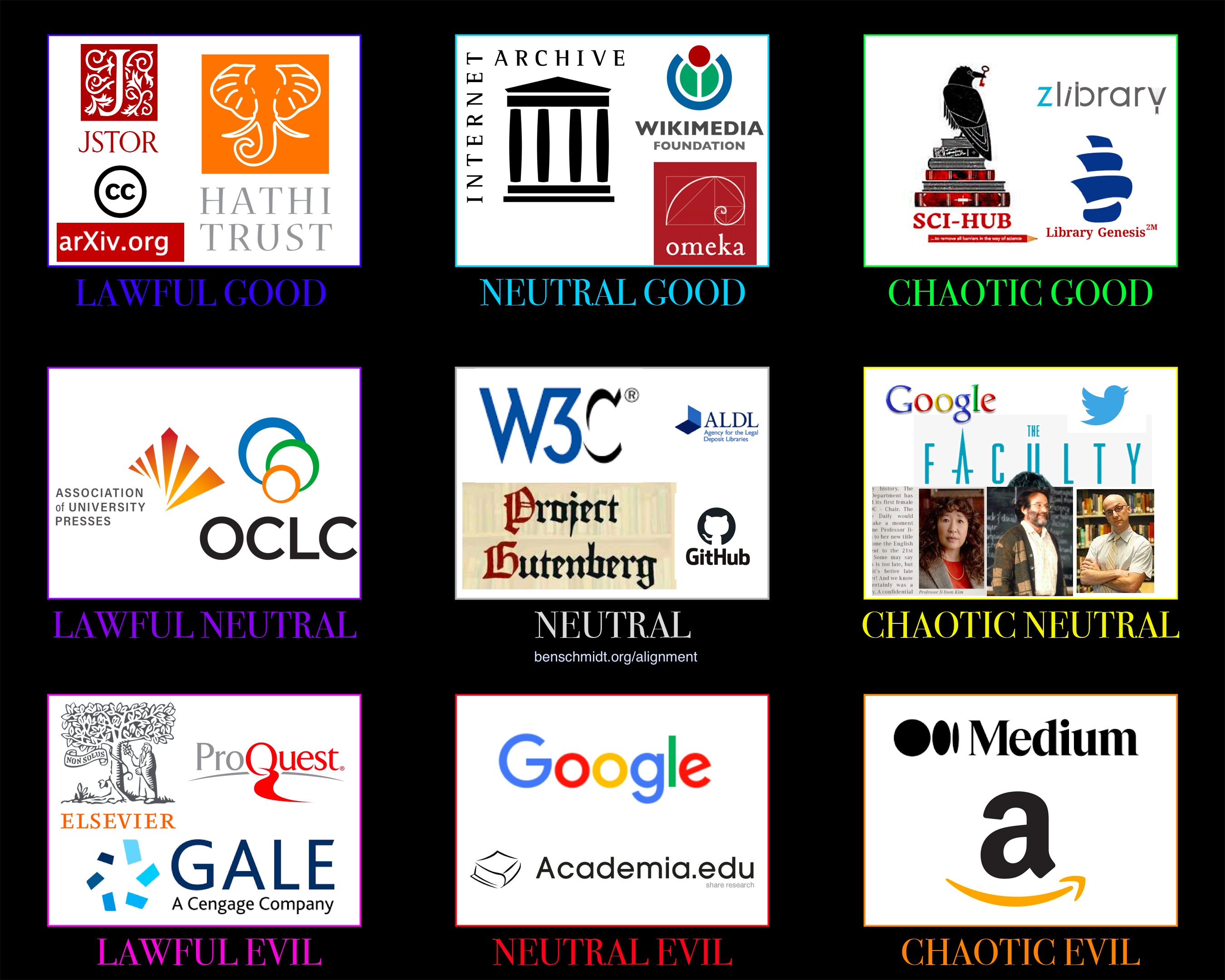Guide to Digital Publishing
I’ve been yammering online about the distinctions between different entities in the landscape of digital publishing and access, especially for digital scholarship on text. So I’ve collected everything I’ve learned over the last 10 years into one, handy-to-use, chart on a 10-year-old meme. The big points here are:
HathiTrust and JSTOR are not for-profit cartels, and I can’t count the number of times I’ve seen faculty and other researchers attack them for not being open enough when they’re just following laws, especially around nonsense justifications for keeping scholarly work out of the public domain, that faculty continually reinforce (through paranoia about, say, disembargoing a dissertation or publishing in an open-access journal that lacks prestige or, God forbid, a journal that skips the tree-killing stage entirely).
Stop publishing on Medium, goddammit! I’m not paying to read your blog post! You’re not going to make any money off of this! If the Huffington Post isn’t paying you and you don’t know how set up a Webserver, just get a Wordpress account and pretend that you’re doing it for old-school cool. Come on, pull it together.
There are three places where change happens here. One is that the neutral Goods–Archive.org, especially–pull the lawful goods into slightly more open practices by doing good things and not getting sued. One is that the chaotic goods–the pirate sites–undermine the business model of the cartels in the lower left and keep them from changing things for the worse. And the last is that the faculty–the chaotic neutrals–pin this chart next to that shirtless picture of Zizek and stop publishing and demanding subscriptions to cengage content because it’s easier.
The common objections are:
Google’s in the wrong place. I think you mean Alphabet. Yes, it sure is. It’s a monopoly; it contains multitudes. If there were a slot in this for fickle old- Testament God on which all else relies that punishes and rewards in equal measures–yeah, I’d use that instead. But it is what it is.
JSTOR’s not good. Disagree. That’s the whole point here; we need something that isn’t gouging out our eyeballs in the scholarly journal space, and JSTOR is a not-for-profit targeted at nonexpert users that tries to keep pace.
What about Aaron Swartz? Why does this keep coming up? No, JSTOR did not kill Aaron Swartz. First off, it was the US Attorney who insisted on going through with it. Go read the MIT report and you’ll see that JSTOR called for the prosecution to be dropped the day he was arrested, while MIT refused to issue a public statement for months.
You forgot my favorite pirate site. I did! There are a lot of them, huh?
Seriously, Medium? STOP PUBLISHING ON MEDIUM PEOPLE I AM NOT PAYING FOR YOUR BLOG POST I DON’T UNDERSTAND WHY PEOPLE ARE PRETENDING THIS IS SOMEHOW ANYTHING OTHER THAN JUST A WORSE VERSION OF BLOGSPOT.COM
Google’s on it twice. Font choice.
Credits for suggestions to Alex Humphreys, Ted Underwood, Scott Weingart, Melissa Teras, Rachel Midura, Will Hanley, Ethan Gruber.

Permalink